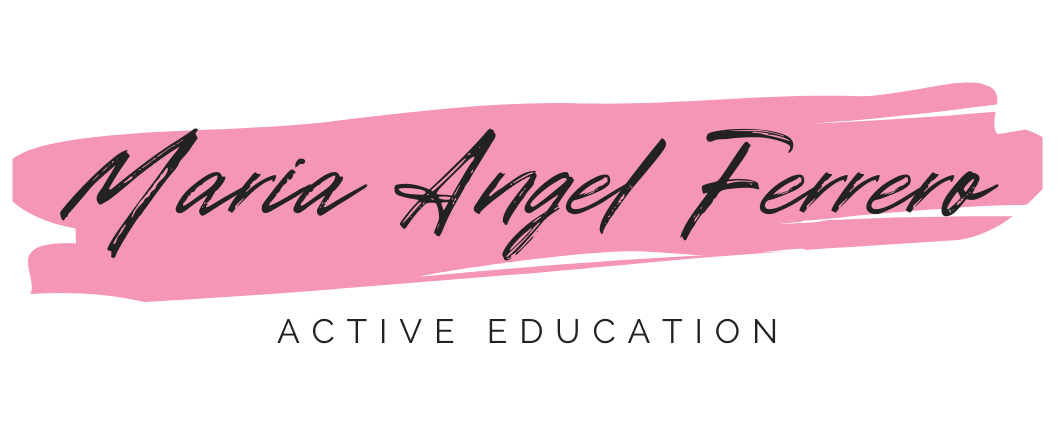To bring out the best of others, you need first to bring out the best of who you are.
If I have to be honest, I’d never picture myself as a professor. When I was younger I always thought teaching was not for me. I found it boring, pointless, and unrewarding. I had better ideas in mind for a professional career. Never it occurred to me I’ll end up in education.
It took me 12 years of study, 3 countries, 5 different employments, 3 interviews, and 1 lecture to realize that teaching was my thing.
Many educators, like me, got into this career path because it was our calling. For us, Education is our passion, and we are committed to making this place better for everyone.
However, that willingness to change the world through knowledge and better education can be also an enormous burden. And unfortunately is the cause for burn out and early leave from academia.
If there is something I’ve learned during my short experience as a professor is that we don’t have the power to change anyone. Change only happens when people decide to change. We can only inspire change.
But I learned this, I still am, through the hard way. In my earliest years I felt discouraged, disappointed, and a failure. Because there is nothing more disheartening than wanting to give the best of who you are to change the world and not being able to even move a grain of sand.
I wish someone had told me these 5 things in my early years as an educator. This is the advice I would give my junior self and every other junior educator entering Academia. Do yourself a favor and get this ASAP. Don’t do what I did and learn it the hard way.
1. You are not supposed to know it all
Is not because you are an educator that you have to know it all. We are human. No matter how many degrees we have under our shoulder, we can’t know everything. And that’s ok.
I remember my first lectures. I was so stressed about the questions students would ask during the class. I was prepared to give my lecture and knew very well my subject. But just the idea of having a student asking me something I wouldn’t have an answer for was afflicting.
I thought I had to know it all. I thought I had to answer with mastering and without hesitation. I thought not having an appropriate answer would make me a clown and an impostor.
But what happens, really, when you don’t know something? You learn.
Something I came to love about teaching is that you never stop learning. And your students are outstanding teachers.
“Once we accept our limits, we go beyond them.”
― Albert Einstein
Our role as professors is not to know everything and pass on knowledge to our students. Our role is to provide the proper environment for learning to happen. It’s our role to inspire curiosity and encourage collaboration. Our role is to provide the right tools to create knowledge and question what each one of us already knows.
Not knowing everything is a strength. It shows how human we are, how eager we are to become more knowledgeable. It shows our humility.
When there is a question you don’t know how to answer, instead of falling for the anxiety or embarrassment take it as an opportunity to learn and encourage learning. This is what you can do to turn it in your favor.
- “I don’t know the answer, I’ll look at it and come back to you with an answer soon,”
- “I’m not sure about the answer, what are your thoughts about it?”
- “That’s a good question, maybe we can come up with an answer as a group.”
2. Some students won’t like you
I know we want to be that one memorable professor for all of our students. We just want to give the best of who we are to each and every one of them.
We want them to think we are awesome, cool, inspiring, knowledgeable, trustworthy. We want to inspire change in them, give them the best opportunities to thrive and make it once they’re out of our classrooms. They are our children, and we love them all.
But the truth is, not everyone would like you. It doesn’t matter how much you try, or what you do to please them. Some will simply not like you, and that’s fine. It is not because some students don’t appreciate you, that you are less valuable.
The faster you come in peace with that fact, the faster you’ll start enjoying your career. Don’t lose your sleep to a few discouraging comments or behavior. Again, your job is not to change anyone, your job is to inspire change. But each person is master of their own decisions. They are also allowed to disagree with you and not like you. They are humans too.
It doesn’t mean you have to forget about them. On the contrary, keep being yourself, keep giving your best to them, to each one of them, regardless of how much they like you or not.
3. ‘No’ is a plausible answer
Many of us have a hard time saying no to people because the word no has a negative connotation. This is especially true when you are young in your career. You are passionate and you want to give your best to other people. You want to help and say yes to everything because you are eager to learn and grow.
But saying no could really save lives, yours and that of others.
When we say “No thanks, I don’t take drugs,” or when you tell your kids, “No, you can’t jump from the stairs,” we are saving lives.
The same stands true in your career. You can say, “No, I don’t really have the time” when your colleagues ask you to perform a job that is not yours to do just because they won’t find the time to do it themselves.
You can say, “No, I can’t replace you for those theses defense” when you are already overwhelmed by your own grading, service hours, and research. You might also say, “No, I can’t stay over 6 pm I have other important things to do at home”when the deadline for a report is close, and your supervisor wants to finish today, only because tomorrow he will be on holiday.
“Love yourself enough to set boundaries. Your time and energy are precious. You get to choose how you use it. You teach people how to treat you by deciding what you will and won’t accept.”
― Anna Taylor
Saying no can help you maintain your sanity, health, and life balance. And it can also help your supervisors or colleagues to be more productive, responsible, and smarter.
Saying no will not only help you achieve your career goals but it would help you win your colleagues’ respect. With a simple polite no, they will understand that your time is valuable and they’ll learn to appreciate your help and guidance when you eventually say yes.
4. You are more important than anyone else
No, this is nothing to do with being narcissistic or selfish. Is about self-worth and self-care. It doesn’t matter how much you care for others, if you don’t take care of yourself first, your efforts to be there for other people would be fruitless.
Your life, your health, your family, your goals, come first, and before anyone else’s.
You can’t pour from an empty cup. Take care of yourself first.
It might seem obvious to say, but when you are an educator it’s easy to forget about it. We are so passionate and compromised with our mission that we forget we have a life besides academia.
I love my students, and I would do anything to help them thrive. I would do anything to ease their pains. I would do anything to make their learning and life experience as memorable and enjoyable as possible. But I can’t do that if I don’t take care of myself first.
You can be compassionate, kind, and engaged with your students, but you can’t live their lives for them. You can’t exchange your life for theirs. Your life is more important than anything else.
The same goes for your colleagues. Yes to kindness and empathy. But be the best person you can be to yourself first. Then share it with others. You can’t give to others if there is nothing there to give.
5. Weekends and holidays are meant for relaxing
I love my job, but to be honest, there is nothing more exhausting than being an educator. You are constantly giving the best of who you are to an audience of people that’s not always condescending.
Most of the time you are standing, speaking vigorously, walking from one classroom to the other, going up and down the stairs, running between hallways, carrying out meetings, answering to difficult questions, solving problems. Those things burn all of your energy.
I know that I feel more tired after a complete day of teaching than after a full day of sport and errands. At the end of the day, the only thing I want to do is to take a bath and fall asleep watching Netflix. I can’t, of course, my night shift starts at 5 pm when I pick up my kids from school.
Breaks are important! There is a reason for the multiple school breaks, teachers need them.
I teach adults and it takes every inch of me. It takes self-control, patience, self-efficacy, creativity, and all my energy. I can’t imagine how K12 educators feel like at the end of the day. I admire you, honestly.
So, use your breaks to relax, to re-energize, to do the other things you love. Don’t use your breaks to grade papers, design curriculums, or read theses. Use breaks to step aside from those preoccupations and take care of yourself and your loved ones. Use it to read the novels you ditched last year to read those research papers. Use it to write that book you started years ago. Use it to travel and learn about new cultures. Use it to laugh with your family and friends. Use it for whatever you want, but use it right.
Everything else can wait. Your weekends are days off, on Monday you’ll be ready to take on those preoccupations again. Your students can wait. Your colleagues can wait. Your supervisor can wait. But your health, your sanity, your life can’t wait any longer.
Teaching is a beautiful thing. Being an educator is one of the most rewarding careers. Don’t let your passion for and your engagement with your calling hinder your life goals and your identity.
To bring out the best of others, you need first to bring out the best of who you are.
“It’s not the days in your life, but the life in your days that counts.”
— Brian White

